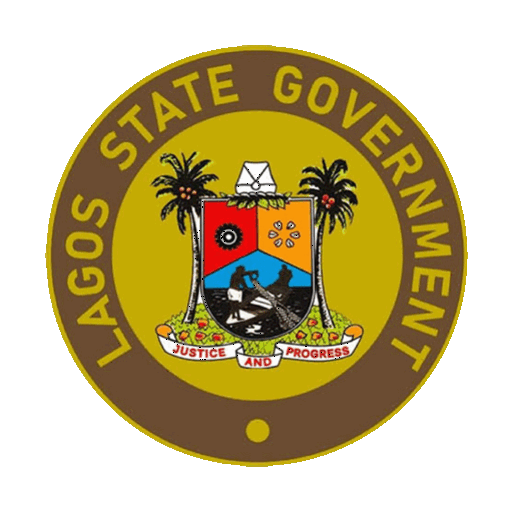
Innovating Waste Management: Adeleye Odebunmi on Pakam Technology’s Role in Building a Sustainable Future.
Lagos, November21st, 2024.
Adeleye Odebunmi, the visionary CEO and Co-Founder of Pakam Technology, is leading a transformative effort to reshape the waste management industry in Nigeria and beyond. With a deep passion for sustainability and innovation, Adeleye is at the forefront of driving Pakam’s mission to foster a circular economy. By leveraging cutting-edge technology, Pakam connects waste generators, collectors, and recyclers, creating a transparent and efficient waste management ecosystem. Through this innovative approach, Adeleye is not only enhancing waste management practices but also contributing to the broader goal of environmental sustainability and community empowerment.
- Can you briefly introduce yourself and your role with Pakam Technology?
I am Adeleye Odebunmi, the CEO and Co-Founder of Pakam Technology. My role involves leading the strategic vision and operations of the company as we leverage technology to revolutionize waste management and recycling. At Pakam, we focus on connecting waste generators, collectors, and recyclers through a digital platform that promotes transparency, real-time tracking, and data-driven decision-making. My mission is to foster a circular economy, create financial independence for citizens, and drive sustainable solutions in waste management across Nigeria and beyond.
2. What inspired you to start Pakam Technology, and what was the vision behind its creation?
I was inspired to start Pakam Technology by the pressing inefficiencies in waste management systems across Nigeria and the broader need for sustainable solutions in our rapidly digitalizing world. The vision behind Pakam’s creation is to make waste scarcity a reality by driving a circular economy where every recyclable material is accounted for and valued. I wanted to empower communities, create financial independence for individuals through waste collection opportunities, and provide robust, data-driven tools for governments and businesses to manage waste sustainably. Ultimately, Pakam aims to transform waste into wealth while contributing to global sustainability goals.
3. Could you give us an overview of Pakam Technology’s mission and how it aligns with the goals of a circular economy?
Pakam Technology’s mission is to create waste scarcity by leveraging technology to transform how waste is managed, collected, and recycled. We aim to establish an inclusive and transparent waste management ecosystem that promotes recycling, empowers communities, and drives environmental sustainability. Our mission aligns with the goals of a circular economy by:
- Reducing waste generation: Pakam ensures that recyclables are diverted from landfills and transformed into valuable resources.
- Facilitating resource reuse: By connecting waste generators, collectors, and recyclers, we enable materials to re-enter production cycles.
- Promoting financial inclusion: Pakam creates income opportunities for informal waste workers and empowers citizens to participate actively in recycling efforts.
- Using data for sustainability: Our platform provides real-time tracking and analytics, helping stakeholders make informed decisions to optimize resource use and reduce environmental impact. Through this, we contribute to the transition from a linear “take-make-dispose” model to a sustainable system where waste becomes a valuable resource, benefiting economies, communities, and the planet.
4. How does Pakam Technology use data and software applications to promote sustainability through recycling and waste management? Can you explain your platform’s core functionality?
Pakam Technology uses data and software to create a transparent and efficient waste management system. It connects waste generators, collectors, and recyclers, ensuring accountability and sustainability.
Core Features:
- Real-Time Tracking: Monitors the entire waste collection and recycling process for transparency.
- Efficient Scheduling: Optimizes collection routes to reduce emissions and inefficiencies.
- Data Insights: Provides analytics to guide sustainability decisions.
- Recyclable Marketplace: Facilitates transactions between collectors and recyclers, promoting a circular economy.
- Inclusion of Informal Workers: Integrates informal collectors into the formal economy with digital tools and financial services.
- Impact Measurement: Tracks environmental and social outcomes, like reduced emissions and improved livelihoods.
Pakam’s platform promotes sustainability, reduces pollution, and supports a circular economy.
5. How does Pakam engage with local communities to promote recycling, waste management, and sustainable practices? Could you share any specific examples or success stories?
Pakam engages local communities to promote recycling and sustainable practices through education, empowerment, and collaboration. Our approach focuses on awareness, inclusion, and creating economic opportunities to drive positive change.
Key Strategies:
- Community Awareness: Pakam organizes workshops and school programs like “Recycle Together,” teaching students about recycling and incentivizing them to collect recyclables.
- Incentive-Based Recycling: We provide financial rewards for recyclables, creating income opportunities, especially in underserved communities.
- Local Partnerships: Collaborating with governments, NGOs, and businesses, such as OCCE Lagos & Technoserve, to train over 10,000 waste collectors in 5 years.
- Inclusion via Technology: Integrating informal waste pickers into our digital platform, improving their earnings and access to essential services.
Success Story: Pakam’s “Waste to Wealth Initiative” has paid over 48 million to households, diverting 700 tons of waste from landfills, showcasing the impact of community collaboration and technology.
Through these efforts, Pakam fosters sustainability and drives both environmental and social change.
6. What role does Pakam play in supporting the achievement of the 2030 Sustainable Development Goals (SDGs)? Are there specific SDGs that you prioritize in your operations?
Pakam Technology contributes to achieving the 2030 Sustainable Development Goals (SDGs) by aligning our operations with key targets focused on sustainability, inclusivity, and innovation.
Key SDGs Pakam Prioritizes:
- SDG 11: Sustainable Cities and Communities: Promoting efficient waste management and reducing pollution in urban areas.
- SDG 12: Responsible Consumption and Production: Facilitating a circular economy by encouraging recycling and resource efficiency.
- SDG 8: Decent Work and Economic Growth: Creating income opportunities for waste collectors, integrating informal workers into the formal economy.
- SDG 13: Climate Action: Reducing waste-related pollution and lowering greenhouse gas emissions.
- SDG 9: Industry, Innovation, and Infrastructure: Modernizing waste management through technology and data-driven decision-making.
- SDG 1: No Poverty: Enhancing economic stability in underserved communities through job creation and financial incentives.
Impact Examples:
- Waste Reduction: Pakam has helped recycle thousands of tons of waste, reducing environmental pollution.
- Community Empowerment: Over 500 individuals trained to become independent waste collectors.
- Policy Support: Providing data insights to local governments to shape policies supporting responsible waste management.
Through these efforts, Pakam is advancing a sustainable future, promoting environmental protection, economic inclusion, and social well-being.
7. Can you describe any partnerships or collaborations Pakam has formed with other organizations or businesses to enhance its impact in the circular economy and waste management sectors?
Pakam has established strategic partnerships and collaborations with various organizations, businesses, and government agencies to amplify its impact in the circular economy and waste management sectors. These partnerships focus on leveraging shared expertise, resources, and networks to drive sustainability, innovation, and inclusivity. This partnerships ranges from waste aggregators, regulatory agencies, NGOs, businesses that cares about sustainability. For the sake of NDA, I will not be able to call names. Impact of Partnerships: Through these collaborations, Pakam is growing its reach, improving operational efficiency, and creating scalable, impactful solutions. Each partnership reinforces our mission to drive a circular economy, foster sustainable waste management, and improve livelihoods, both locally and globally.
8. What are some of the most significant challenges Pakam has faced in promoting a circular economy through recycling, and how has the company overcome these hurdles?
Pakam is faced with several significant challenges in promoting a circular economy through recycling. These hurdles stem from systemic inefficiencies, social barriers, and infrastructural gaps. However, the company is addressing these issues through innovation, collaboration, and adaptive strategies.
9. Could you highlight any impactful projects or initiatives that Pakam has implemented, particularly in terms of job creation, community empowerment, or environmental sustainability?
Pakam has made significant strides in promoting sustainability, empowering communities, and advancing environmental stewardship through impactful projects. These initiatives highlight the role of technology and collaboration in driving a circular economy.
Key Projects:
- School Recycling Programs:
- Impact: Educating students on sustainability and recycling.
- Outcome: Increased recycling rates and empowered students to advocate for environmental stewardship in their communities.
- Collectors Program:
- Impact: Training over 1,000 individuals as plastic waste collectors in partnership with Technoserve and the Lagos State Government.
- Outcome: Financial inclusion for participants and reduced plastic waste in Lagos.
- Informal Waste Worker Integration:
- Impact: Integrating informal waste pickers into Pakam’s digital platform with training and fair compensation.
- Outcome: Empowered waste workers, improving their livelihoods and enhancing recycling efficiency.
- Ecochat by Pakam:
- Impact: Educating communities on sustainable waste management practices.
- Outcome: Increased recycling rates and cleaner environments.
Environmental and Social Outcomes:
- Sustainability: Significant waste diversion, reducing greenhouse gas emissions and promoting resource reuse.
- Job Creation: Creating direct and indirect job opportunities, especially for youth and women.
- Community Empowerment: Building capacity through education, technology, and financial inclusion, fostering a sustainable circular economy.
These projects exemplify Pakam’s commitment to a sustainable future, driving both environmental and social change.
10. How do you see the role of technology in achieving global sustainability goals, particularly in emerging markets like Nigeria or other parts of Africa?
Technology plays a transformative role in achieving global sustainability goals, particularly in emerging markets like Nigeria and across Africa. By leveraging innovations such as data analytics, IoT, blockchain, and mobile platforms, technology bridges gaps in infrastructure, enhances resource efficiency, and promotes transparency in waste management and recycling. In regions with limited formal systems, technology enables real-time data tracking, connects informal workers to formal economies, and drives community engagement through education and incentives. This accelerates progress towards Sustainable Development Goals (SDGs) such as responsible consumption (SDG 12), climate action (SDG 13), and decent work (SDG 8), creating a foundation for long-term environmental and economic resilience.


